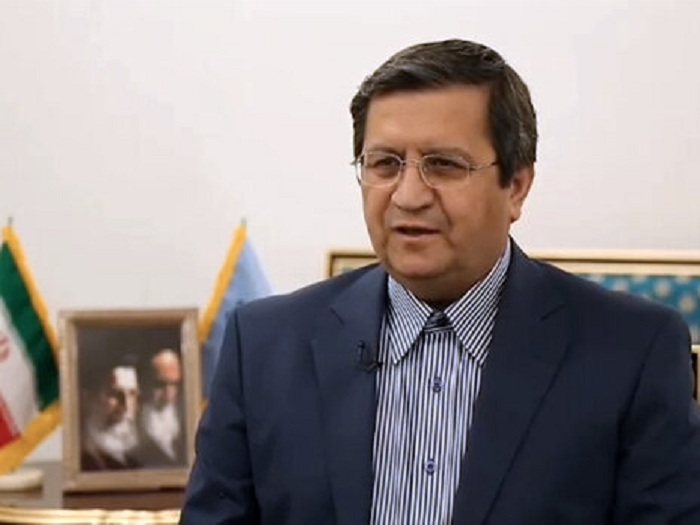Eighty percent of liquidity comes from high bank profits

Governor of the Central Bank: Eighty percent of the liquidity comes from quasi-money and high bank profits. If the government decides not to get into the hands of the central bank, we will definitely overcome inflation.
According to the International Exhibition of Iranian Stone, Abdul Nasser Hemmati, Governor of the Central Bank, said in a public session of the Islamic Consultative Assembly today on controlling inflation: "We have no way to control inflation except to improve the relationship between the government and the central bank."
He noted that inflation has averaged 20 percent in the past 50 years. "The reason for the high growth of liquidity in our country is due to our relationship with the government, and the government's relationship with the central bank needs to be improved. If the result is that the central bank does not have a hand in it, we will definitely overcome inflation and high liquidity.
"We need to move towards a gradual reduction in inflation by implementing open market operations, and the government's budget deficit should not lead to the growth of the monetary base," he said.
Hemmati stressed: "Costs should also be controlled and it does not make sense to constantly increase costs and not have revenue, and therefore we are determined to seriously pursue open market operations this year."
"Our forecast is that inflation will be around 24 percent this year, but we're aiming to reduce that," he said.
He added: "One of the reasons for inflation in our country and liquidity is the issue of quasi-money, which includes eighty percent of our liquidity and is generated from bank profits. When the government is forced to borrow from the central bank, it causes liquidity to grow rapidly." It increases.
Referring to the merger of some banks, Hemmati said: "Our whole goal is to save the banks from the pressure of liquidity."
"We are implementing new and scientific management in the foreign exchange market," he said. "In the past, our executive system was injected into the foreign exchange market to maintain the foreign exchange market, and an average of eighteen billion dollars a year to control this market." And inflation was injected, and many of these currencies went out of the country.
"Over the past two years, the central bank has not injected currency into the market, and we have reformed foreign exchange policies and moved toward scientific management," he said.
"We are seriously fighting money laundering, reforming credit policies to provide production and generating production facilities, and monitoring market control policies," Hemmati said.
Pointing out that we went through very difficult conditions in 1397, he said: "In recent years, we have gone through one of the most difficult periods since the victory of the Islamic Revolution, because the oppressive sanctions of the enemies were unprecedented and intelligent."
The governor of the Central Bank said that the United States and its allies used all their tools to deprive Iran of their international income, adding: "The enemies of the Islamic Republic of Iran have disrupted all Iranian banking portals and their goal is the collapse of Iran's economy and failure to reach It was the 40th anniversary of the Islamic Revolution that they did not achieve their goal.
Emphasizing that in the current situation we have a superior hand over the United States, Hemmati stated: "The Americans are currently facing problems that sought to involve Iran in those issues."
He noted: "In 1397, astronomical numbers for inflation and foreign exchange rates were predicted and proposed, which did not happen with the measures of the Supreme Leader of the Revolution, the resistance of the people and the management of officials, and we did not see astronomical rates in inflation and currency."
Referring to the impact of sanctions on some economic indicators, the governor of the Central Bank said: "For example, in 1397 we had about one hundred and seven billion dollars of revenue from oil sales, which last year was less than twenty percent of this figure. Also, in 1397, our imports were about seventy-eight billion dollars, which decreased to forty-two billion dollars last year.
Hemmati stressed that, of course, we see sanctions as an opportunity to pay attention to domestic power, national production and non-dependence on oil revenues. Agriculture has grown by seven and two percent, industry by seven percent and services by one and two percent.
Pointing out that due to the outbreak of corona in March, the inflow of foreign currency into the country decreased, he said: "This was due to the disconnection from neighbors during the corona period, but of course we are looking to solve these problems in some way." In the months since the beginning of the new year, we have been able to raise $ 4 billion to import raw materials from factories, pharmaceuticals and basic commodities, which have been achieved through non-oil exports.
"Despite the US economic pressure on Iran, we imported $ 40,000 billion last year," he said. "These indicators show the failure of US policy." Of course, we know that the people, especially the vulnerable, have suffered a lot.
Hemmati said that Iran's friendly countries, including Iraq and Korea, could not provide foreign exchange resources to Iran due to US pressure. "I have to report that the central bank's foreign exchange reserves are good and sufficient, but we are not allowed to access them," he said.
He said that the exchange rate is a very important indicator for the development of trade policies in the country, adding that trade policies should be in line with foreign exchange policies. Because the turmoil in the foreign exchange market affects the economic situation of the country, and my request to the members of parliament is to help the government and the central bank to provide foreign exchange resources.










